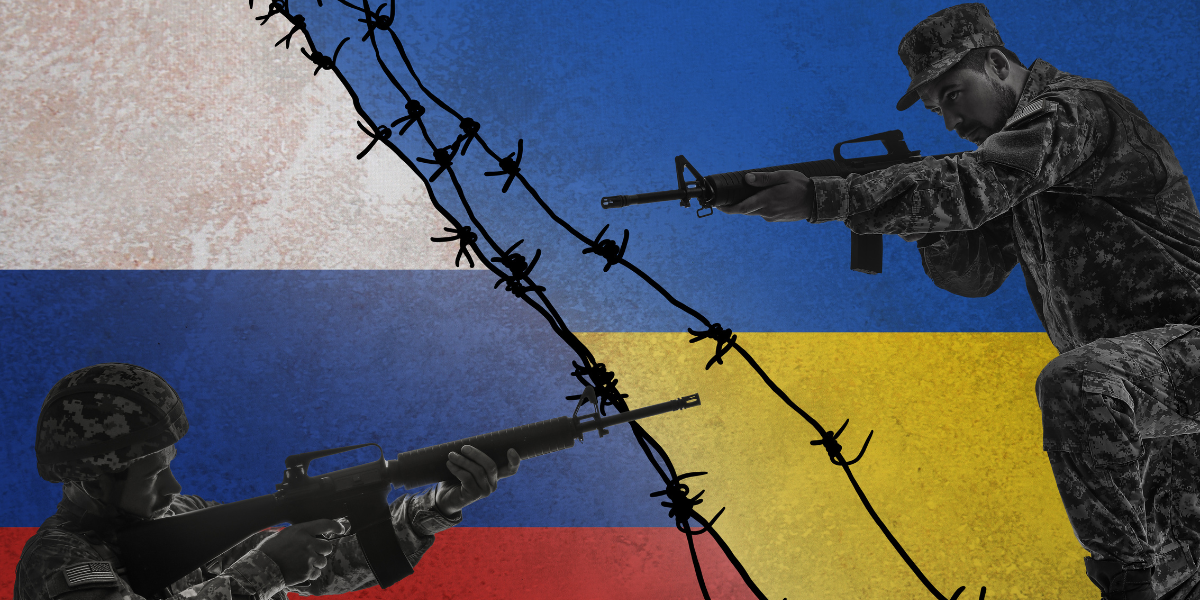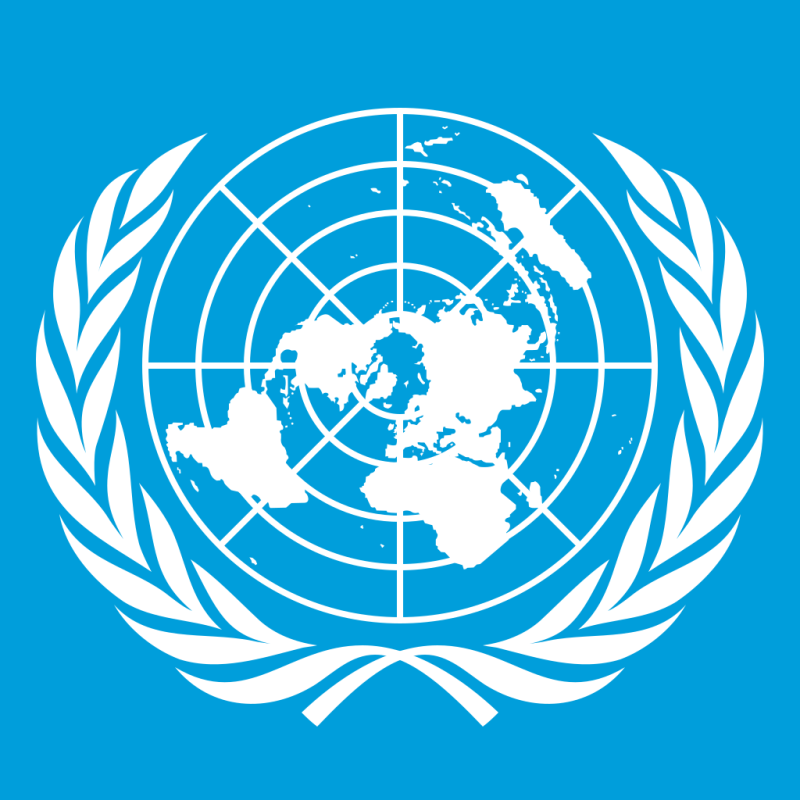In July 1864, nine months before Lee surrendered at Appomattox, ending the American civil war, Horace Greeley, editor of the New York Tribune and hitherto a stalwart supporter of the North, wrote Abraham Lincoln a letter urging him to make peace overtures to the South. Lincoln ignored Greeley’s letter; to have followed his advice would mean conceding defeat. Greeley’s curious letter was written just as the North was establishing a decisive superiority over the South on all fronts. Seven weeks later, the conquest of Atlanta by General Sherman commenced a cascade of Confederate military disasters that culminated at Appomattox.
Something similar to Greeley’s letter has been written by Prof. Ephraim Inbar, head of the Jerusalem Institute of Strategic Studies. Prof. Inbar writes that “it is in America’s interest to end the war in Ukraine” by negotiations. The chief reasons Prof. Inbar adduces for his positions are as follows:
- The war is unlikely to achieve a Russian defeat.
- Western ammunition stocks are being depleted. Ukraine’s ability to resist Russia will dwindle.
- The West has already achieved its objective of weakening Russia.
- Humiliating Russia is counterproductive in the context of Western-Chinese competition.
- Continuing to invest extensive resources in Ukraine diverts resources from the West’s need to confront China.
- Continuing the war risks Russian nuclear escalation.
In consequence Prof. Inbar recommends that the United States compel a negotiated end to the war and the “Finlandisation” of Ukraine.
Underlying Prof. Inbar’s recommendations are unwarranted assumptions about the balance of power between the West and Russia as well as Russia’s openness to a genuine settlement of its conflict with Ukraine, certainly under present conditions. The analysis below may serve as a response to similar proposals offered in other corners.
- Who’s Winning?
Before war broke out in February this year Western analysts and decision makers tended to overrate the combat power of Russia and its armed forces – including assessments of the ability of Russia’s economy and society to sustain the armed forces over the long run – and to underrate the Ukrainians. The present author shared these assessments. I believed that the spearhead forces of the Russian army would quickly overwhelm the Ukrainians, even though as a long-time student of relations between the Soviet economy and its armed forces, a topic I continued to pursue occasionally in the years since 1991, I had long been skeptical that the Russian armed forces enjoy the social and logistic backing that the Red Army enjoyed in 1941. And behold, the Ukrainians showed that the initial assessments of foreign analysts were far off the mark. In contrast, nothing that has happened in ten months of war has led me to change my assessment of Russia’s current inability to pursue a long war stretching over several years.
On the other hand, it is clear that the Ukrainians on their own cannot win. They depend on the West for everything, from arms and ammunition to sustaining their civilian infrastructure, now under constant attack, and even basic supplies for their civilian population. They have nothing of their own but patriotism and grit. It is however worth pointing out that, in a strategic sense, the West has been here before, under much worse circumstances. This paragraph might have described Britain in the first half of 1941.
The West is in a much better position today. For some reason, Prof. Inbar fails to take into account that the “race to the bottom” of ammunition reserves is mutual. When Russia needs to buy “dumb” artillery shells from North Korea and RPVs from Iran, it shows that it is incapable of sustaining the fight it has got itself into from its own resources. As for Russia’s own military industry, it can, in peacetime and over time, fulfill its contracts with foreign customers. Its capacity however is far, far below what is required to sustain combat operations at the pace at which they are being conducted in the Ukraine. The Western embargo on critical components is not airtight but it is sufficiently effective to ensure that Russia cannot, on its own, overcome the gap between production and requirements. The Chinese could in principle supply the difference, but the Chinese appear to have wisely decided to limit their bets on Russia prevailing in this war.
On the other hand, the West has two major advantages. First, it is becoming increasingly clear that the limitations the West and chiefly the United States have placed upon conventional arms transfers to Ukraine are pointless. The Russians cannot afford to extend their theater of operations to the West, they are barely contending with the challenges they now face. Were the West to supply to Ukraine the weapons systems it is now pleading for – several hundred Western tanks, several hundred self-propelled artillery pieces, More HIMARS, sufficient air defense assets to cover the entire country, and conventional weapons capable of striking deep in the Russian rear, they would achieve a marked tactical and operational superiority over the Russian army. These transfers are eminently possible, and some are in fact being carried out.
Prof. Inbar’s decision to trot out the old Russian threat about the use of nuclear weapons is curious. The Putin regime has downplayed this threat for the past several months. This threat is not really credible for two major reasons:
- The Russians will not use a nuclear weapon on the soil of a NATO member. The first commandment of relations between nuclear powers is “do not do unto others as you would not have them do unto you.” Putin’s regime is not so stable that he can afford to have nuclear weapons going off near Russian population concentrations.
- The United States has already succeeded in deterring Russia from using tactical weapons in Ukraine by threatening conventional retaliation against Russian conventional forces. Now that Russia’s air force and navy have been exposed as close to useless and the Russian army as a hollow army, there is little doubt that American forces could inflict a decisive conventional defeat on the forces Russia has deployed in and around Ukraine if Russia decides on nuclear escalation. As regards the possibility of Russian nuclear retaliation against American conventional forces, see item (a) above.
Before the war Ukraine had a population of about 54 million. In consequence of the war, millions having fled abroad, Ukraine’s available population is now down to about 33 million. This is approximately the proportion of population the Soviet war effort was deprived of between June 1941 and June 1944. But the war is taking place on Ukrainian territory. Based on various nations’ previous experience, Ukraine should prove entirely capable of drafting 3% of its current population and matching, the best Putin can expect to do with his forced drafts.
The West’s second advantage is that as far as it is concerned the race to procure more arms and ammunition has just started. It would not be inappropriate to point out that the recently approved NDAA for fiscal 2023 authorized procurement of $2.7 billion worth of Army munitions, on top of an even larger amount for naval munitions – thousands of Stinger missiles, tens of thousands of Javelins, etc. etc. The total amount comes to 1% of the projected military budget for FY 2023. Given projected requirements for the United States and its allies, it would be appropriate to plan, and budget for, producing such amounts every quarter at least.
It therefore seems likely that if the war lasts another two years and the West supports Ukraine as it ought, the Russians must lose. Only defeatism would justify trying to make a deal with the Russians now, when they still dominate parts of five Ukrainian regions (including all of the Crimea). Even if we assume that the Ukrainians need to remain on the defensive in the next 6-8 months, while the Russians deploy the reserves they have generated since starting their draft and reopen their front north of Kyiv, as long as the Ukrainians maintain an unbroken front, give ground slowly and judiciously, receive what they need from the West, and build up their strategic reserves, the war must turn decisively in their favor next year.
- But why bother?
Why bother at the expense of so much Western treasure and Ukrainian blood, if a deal can be struck with Russia as Inbar suggests?
Prof. Inbar mistakes the long-term motivations of the current Russian regime. As Vladimir Putin has shown consistently since 2008 at least, he conceives of the West as Russia’s strategic enemy. Putin and his regime are not open to changing sides in the competition between China and the West, and Russia will not change sides as long as Putin remains in power, whether for another ten months or another ten years. Putin’s objective, and the justification for the existence of his regime, is to reconstitute the Soviet empire. He pursues this goal militarily and politically, as he has shown in Chechnya, Abkhazia, Central Asia, and in Ukraine in 2014 and today.
To leave him in possession of the territories he now holds in Ukraine is to confirm the success of a step in the direction of his ultimate objective. It sends the worst kind of signal: That the West would rather compromise with him than sustain the economic pain and bother of opposing his imperial ambitions, even when someone else does the actual fighting. There is no question whatsoever that Putin would see a ceasefire, along whatever geographic lines within Ukraine, as an opportunity to recover Russia’s strength and prepare another attack. There is today no indication whatsoever that this or another Russian leadership would consider an alternative policy. If the West insists on Putin’s being beaten back to the international border, he or whoever succeeds him may then conclude that there is no ultimate hope to achieving these imperial ambitions. Only once a Russian ruler internalizes this lesson is there a chance for a fundamental change in Russia’s international political orientation.
Particularly curious is Prof. Inbar’s mention of the “Finlandization” of Ukraine. While this may have been a desirable arrangement before the outbreak of war, it is now completely impossible. A cease-fire on whatever geographic line will merely signal the continuation of Russian-NATO competition over Ukraine by other means. While it may remain unwise to formally add Ukraine to NATO, thus requiring the Western alliance to engage its own forces in any future Russian-Ukrainian war, it is clear that Ukraine will become a NATO ally and the Russian-Ukrainian border the de facto frontier between Russia and the West. Any change in this situation depends upon a change of heart in Russia, not in the West.
- China.
Prof. Inbar argues that China is pleased to see Russia and the West fighting each other. The fight distracts the West from concentrating on its competition with China while it depletes Western military arsenals. While the West is engaged with the Russian-Ukrainian war it cannot be prepared to fight elsewhere.
Everything that Prof. Inbar says in this head is true, and yet it is not a complete picture of the situation. The weakest part of his argument is that the fight in Ukraine is a distraction from the West’s competition with China. Arguably, what China observes regarding Western behavior over Ukraine is the most important contribution of the Ukrainian conflict to the defense of the West. If China observes a united West determined to make Russia pay in full for its invasion of Ukraine, despite the considerable economic sacrifices required, China’s calculus may change. If China thinks that after it completes the conquest of Taiwan its relations with the West may revert to status quo ante, a West determined to ensure that there is no status quo ante in its relations with Russia may cause the Chinese leadership to think again.
Again, Prof. Inbar is right that the war in Ukraine has caused the West to draw down its arsenals and probably left it unable to fight another major war just now. But that’s spilt milk. Curbing Ukraine right now will not equip either Taiwan or the West to fight a major war in the imminent future. But one lesson of Ukraine is that the West was probably ill-equipped to fight a major war ten months ago as well. Without the war in Ukraine the West would never have been launched, however haltingly, on the road to genuine rearmament.
China faces a choice. Its best chance of victory is if it launches its invasion of Taiwan in the course of 2023. By 2024 it may confront a Taiwan armed to the standards the Ukrainian war makes seem necessary. However the events of 2022 in Ukraine also serve as a warning: War may seem like a sure thing, until you actually start one. Even victory in a war may not be the end of the matter. It’s hard to determine which is the more prudent choice: Going to war against Taiwan in 2023, or forgetting about the war altogether. As China’s recent volte face regarding its zero-covid policy shows, it is capable of making a sharp turn in policy when it becomes convinced that old policies are self-defeating.
- Conclusion.
Under present circumstances, the West has no reason to knuckle under to Russian aggression in the Ukraine or to force the Ukrainians to compromise short of their stated goal of returning to the territorial status quo ante in 2014.




